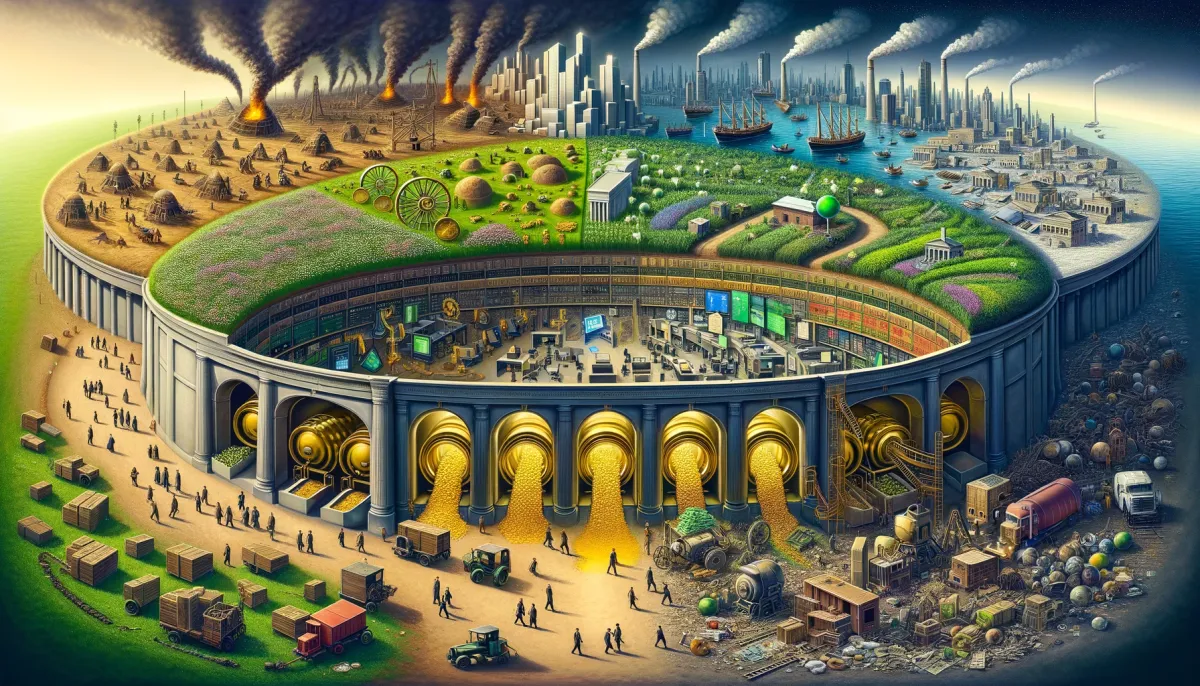Expanding the Narrative: The Socio-Environmental Footprint of Banking

In the intricate tapestry of modern society, banking extends its influence far beyond the confines of wealth accumulation, casting a significant shadow on both social structures and the environment. This article delves into the multifaceted impact of banking, exploring its historical legacies and modern responsibilities. By weaving through topics such as social equity, economic crises, environmental implications, and the rise of ethical banking, we aim to shed light on the critical role banking plays in shaping our world and the pressing need for a more responsible approach to finance.
Banking and Social Equity: Bridging the Divide
Banking has long been a double-edged sword in the realm of social equity. Historically, it has both facilitated economic development and contributed to disparities in wealth distribution and access to financial services. The availability of credit, or lack thereof, has often mirrored societal hierarchies, leaving marginalized communities in the shadows of financial prosperity. This section explores the complex relationship between banking practices and social structures, urging a reevaluation of how financial services can be more inclusively designed.
Economic Crises and Banking: A Delicate Balance
The role of banking in economic stability cannot be overstated. Throughout history, financial practices have either precipitated or cushioned the blow of economic downturns. By examining pivotal moments such as the Great Depression, the 2008 financial crisis, and the economic ramifications of the COVID-19 pandemic, we gain insight into the delicate balance banks must maintain to foster economic resilience and the consequences of their missteps.
Environmental Implications of Banking: A Hidden Cost
As guardians of capital, banks play a crucial role in shaping the planet's environmental future. Investments in industries like fossil fuels and large-scale agriculture have had profound implications for deforestation, carbon emissions, and biodiversity loss. This section ventures into the environmental shadow cast by banking activities and highlights the burgeoning movement towards green banking initiatives that prioritize sustainability and environmental stewardship.
The Rise of Ethical Banking: Aligning Values with Finance
In response to growing consumer awareness and demand for social responsibility, ethical banking has emerged as a beacon of hope. Ethical banks strive to align their operations with values of sustainability, equity, and social welfare, investing in renewable energy, supporting community projects, and ensuring transparent and fair practices. This segment delves into the principles of ethical banking and how it represents a paradigm shift towards a more conscientious financial system.
The Future: Sustainable Finance and Digital Innovation
Looking ahead, the banking sector stands at a crossroads, with sustainability and digital innovation pointing the way forward. This part speculates on the future of banking, emphasizing digital advancements that reduce environmental footprints, such as blockchain and digital currencies, and the potential for banks to lead in the global fight against climate change. The concept of sustainable finance, which integrates environmental, social, and governance (ESG) criteria into investment decisions, is presented as a critical pathway towards a more equitable and sustainable world.
Conclusion: A Call for Responsible Banking
In conclusion, the need for a banking system that transcends traditional metrics of financial stability and growth to prioritize social equity and environmental sustainability is clear. As the world grapples with unprecedented challenges, from climate change to widening social disparities, the banking sector is uniquely positioned to drive positive change. This article serves as a call to action for banks to embrace their potential as agents of transformation, evolving in response to the demands of a rapidly changing world and contributing to a more equitable and sustainable future for all.



Comments ()